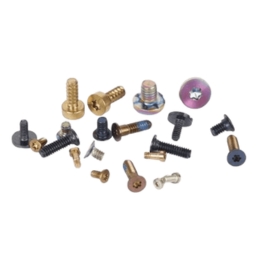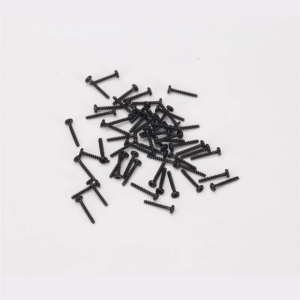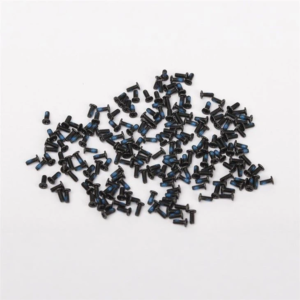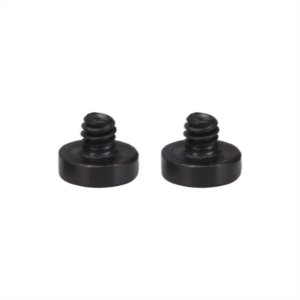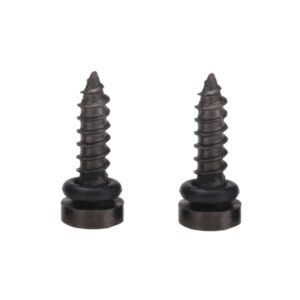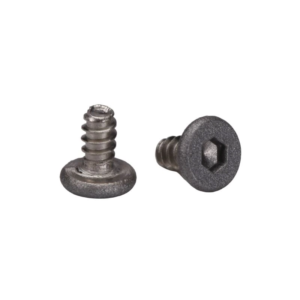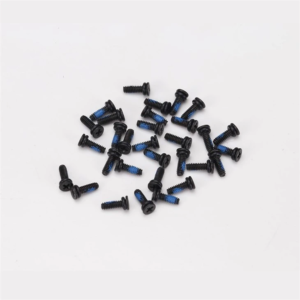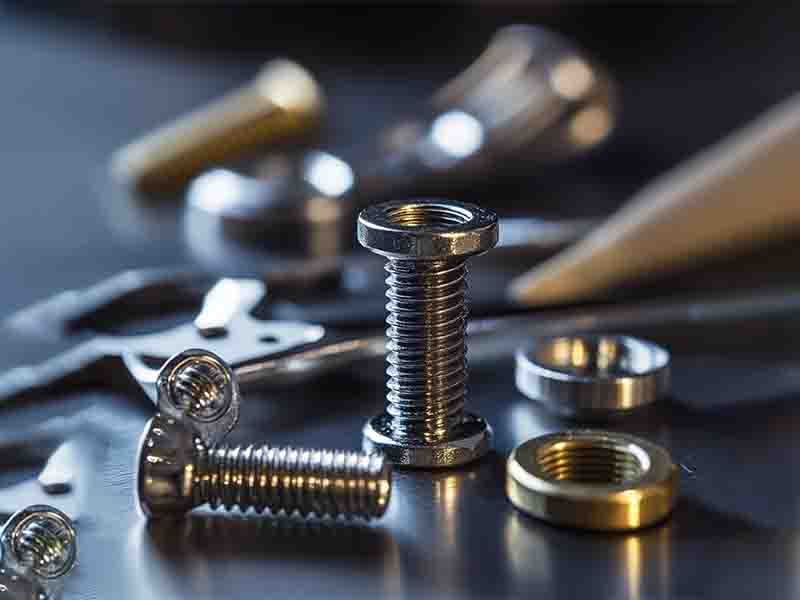
Table of Contents
1. Unmatched Fastening Ability
One of the most significant advantages of screws is their ability to provide a strong, secure connection. The helical thread design of a screw allows it to create a tight bond between two or more parts. When turned, the threads grip the surfaces and generate friction, which firmly holds the parts together.
Compared to other fastening methods, such as rivets or adhesives, screws offer superior strength and stability. They are more resilient to mechanical stress, vibration, and external forces. This makes screws the ideal choice for applications where long-lasting and reliable connections are crucial, such as in construction, automotive industry, and aerospace industries.
2. Removability and Reusability
Another standout feature of screws is their removability. Unlike welding or riveting, which permanently bond parts together, screws can be easily removed and reinstalled without causing damage to the connected components. This advantage makes screws particularly valuable in equipment that requires frequent maintenance, repair, or part replacement.
In industries like electronics, mechanical engineering, and furniture manufacturing, screws allow technicians to access internal parts for repairs or upgrades. For example, in electronics, screws are used to secure circuit boards and other components, allowing for easy disassembly when upgrades or repairs are needed. This reusability also reduces long-term maintenance costs, as components can be reassembled and reconnected multiple times.
3. Diverse Materials and Specifications
Screws are available in a wide range of materials, including carbon steel1, stainless steel2, brass, aluminum, and many others. Each material offers specific properties that suit different applications, allowing engineers and designers to choose the best option for their needs.
- Stainless Steel Screws: Known for their excellent corrosion resistance, stainless steel screws are ideal for use in harsh environments, such as in marine, chemical, or food processing industries.
- Carbon Steel Screws: With high tensile strength, carbon steel screws are suitable for heavy-duty applications that require a strong, durable connection.
- Brass Screws: These screws offer good resistance to corrosion and are often used in electrical and plumbing applications due to their conductivity and non-magnetic properties.
- Aluminum Screws: Lightweight yet strong, aluminum screws are commonly used in industries like aerospace, where weight reduction is essential.
Moreover, screws come in a wide variety of sizes and specifications. From tiny micro screws used in electronics to large, heavy-duty screws designed for construction or automotive applications, there’s a screw for every need. This versatility ensures that screws can meet the demands of diverse industries, from delicate tasks to heavy-duty operations.
4. Efficient Production Process
The production of screws is highly automated and standardized, ensuring that manufacturers can produce large quantities with high precision and consistency. Advanced manufacturing techniques such as cold forging3,hot forging4, and CNC machining5 have greatly improved the speed, accuracy, and quality of screw production.
This high level of automation not only reduces production costs but also ensures that screws meet strict quality standards. Whether you need thousands of screws or just a few, the manufacturing process guarantees that every screw is of uniform quality, making them reliable for any application. This efficient production process also leads to fast lead times and competitive pricing for businesses, making screws an even more attractive option for manufacturers and distributors.
5. Wide Application Across Industries
Screws are used in a broad spectrum of industries, making them a crucial component for various manufacturing and construction processes. Some of the key industries that rely heavily on screws include:
- Construction: In construction, screws are used to join wood, steel, and concrete structures. They provide strong, secure connections that can withstand the stresses of building projects.
- Machinery Manufacturing: Screws play a critical role in assembling mechanical parts, ensuring that components are securely fixed together to maintain the integrity and functionality of machines.
- Electronics: In the electronics industry, screws are used to secure circuit boards and delicate components, offering a reliable method for assembling intricate devices.
- Automotive and Aerospace: High-strength screws are essential in the automotive and aerospace sectors, where they are used to connect critical parts that must withstand high levels of stress and pressure.
In addition, screws are used in countless other applications, including medical devices, furniture, appliances, and more. Their adaptability, reliability, and ease of use make them an essential part of modern manufacturing processes.
Conclusion: The Essential Role of Screws in Modern Industry
The advantages of screws are clear: they offer strong fastening ability, removability, a wide range of materials and sizes, efficient production, and versatility across industries. Whether you’re designing a new product, constructing a building, or assembling delicate electronic devices, screws provide a dependable solution that ensures durability and performance.
As industries continue to evolve, the demand for high-quality, reliable screws will only increase. By understanding the unique benefits of screws, manufacturers and engineers can make informed decisions about their fastener needs, ensuring that their projects are built on a solid foundation.
For businesses looking to source high-quality screws that meet their specific needs, choosing the right supplier is key. At FHT, we offer a wide selection of screws made from the finest materials, manufactured to the highest standards, and tailored to your unique requirements. Reach out today to learn how our screws can improve your production processes and help you achieve your goals.
Footnote
1.Cold forging: Cold forging is a process used to form screws at room temperature, making them stronger without the need for heat. It’s commonly used to improve the precision and durability of screws in high-demand applications.
2.Hot forging: Hot forging involves heating the metal before shaping it into screws. This method enhances the strength of screws, making them suitable for heavy-duty applications.
3.CNC machining: CNC machining uses computer-controlled machines to precisely manufacture screws. This technology ensures that screws meet exact specifications and high-quality standards.
4.Stainless steel: Stainless steel screws are highly resistant to corrosion and are ideal for harsh environments like marine, chemical, and food processing industries.
5.Carbon steel: Carbon steel is known for its high tensile strength, making it ideal for heavy-duty applications that require robust fasteners.

